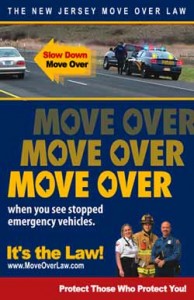Effects of Driving Record Points on Insurance
Author: admin // Category: Car Insurance, DMV / NJ MVC, Fines, Getting Pulled Over, Speeding Tickets, Surcharges, ViolationsBecause your past driving behavior is indicative of your future behavior on the road, your driving history is a major factor in how your risk is viewed and, in turn, how your premium gets calculated. Let’s look into how your driving record affects your auto insurance rates.
DMV Points and Your Driving Record
Many states use a points system for tickets and moving violations. The points go on your driving record and stay for specified periods of time (determined by your state and by the violation). The more points you accumulate, the more likely you are to lose your driver’s license, and the higher the risk you pose to your car insurance company.
When you are considered a “high-risk driver” by your insurance provider, you are subject to higher car insurance rates because you are more likely to file a claim than someone with a better driving record.
Violations still go on your record even if you live in a state that does not use the points system. Moving violations such as speeding, reckless driving, and DUI on your record will still result in premium increases.
Learn more about how points and other infractions affect your car insurance rates by clicking this link: http://www.dmv.org


